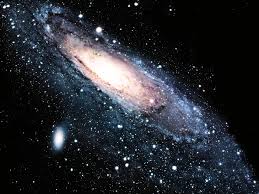
If we take a drinking straw and look up into the night sky through it, we would see about 10,000 stars within the tiny circumference. Multiply the objects in that small space by the entire night sky and the number of stars, planets, and universes is beyond comprehension.
How can we know what God is?
We are told what God is, but the truth is, we do not know.
To me, God smells like a rainy day. God feels soft, like the fur of a kitten. God sounds like songbirds. God looks like spring, summer, winter, and fall. God’s grace is each act of forgiveness, compassion, equality, responsibility, humility, respect, and honesty. I believe the best way to view God is to see God in everything and everyone, because that view of God motivates us to treat all people and all life as we want to be treated.
Let’s look for God’s magnificence of creation in one another and in all life.
Wouldn’t this view of God be the universal acceptance necessary for us to stop fighting one another over God, our differences, and religion?
An expansive spiritual education is not achieved by taking one course.
You and I do not come to a place of expanded wisdom of God’s Divine plan of the interconnectedness of all life by staying in a comfort zone where we are spoon-fed what someone else wants us to believe. Just as we do not receive a well-rounded education that serves us throughout our entire life by having limited experiences or by taking one course.
Achieving a high school diploma requires years of work and the study of many different subjects. To receive a bachelor’s degree involves more years of commitment, challenge, and immersion in an even wider variety of subjects. Pursuing a master’s degree demands additional years of even harder work. And to receive a Ph.D., M.D., J.D., or other terminal degree necessitates an unwavering commitment to many years of intense hard work and dedication.
With each level of education we achieve, the reward is a wider amount of knowledge. Our skill levels increase as do our deductive reasoning and critical thinking abilities. Our values and priorities change. We develop our inquisitive nature.
In all educational pursuits, beautiful things come from challenging ourselves to learn and grow. We also learn and grow from the vast opportunities we have to experience different societies, information, and people. The same is true of our spiritual development, because the more we question ourselves, our beliefs, and our religious and social practices and traditions, the more we learn, grow, and change for the better.
How can we know what God is?
